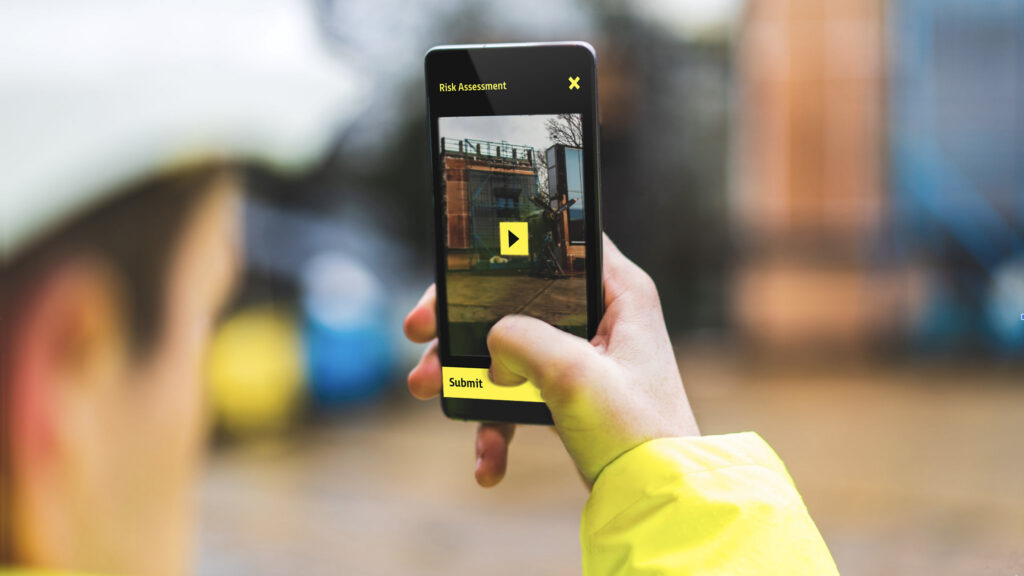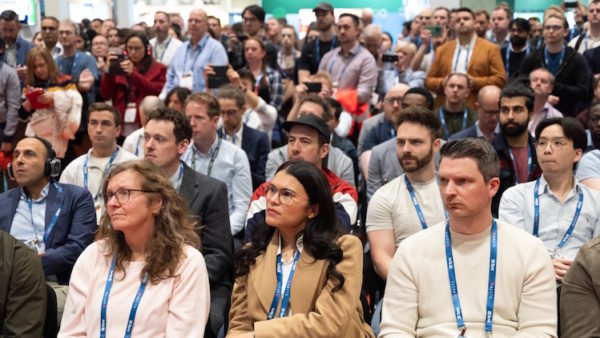
Two British start-ups are among the eight winners of Cemex Ventures’ Construction Startup Competition 2023.
Firstplanit and FYLD will compete against start-ups from France, Singapore, Israel, Ecuador, the US and Germany for the gold, silver, and bronze medals at the pitch day on 7 November in Las Vegas.
In addition to the competition’s benefits – pitching to executive representatives, networking with industry leaders, access to capital investment and real-scale pilots – the gold, silver, and bronze medallists will receive cash prizes.
The competition is led by Cemex Ventures and its partners from Black & Veatch, Dysruptek by Haskell, Ferrovial, Hilti, Vinci Group’s Leonard, Nova by Saint-Gobain, Trimble, and Zacua Ventures.
Read on for more information about the winners.
Civ Robotics
Civ Robotics, from the US, builds autonomous layout systems for the construction industry with an emphasis on solar farm and road projects that require thousands of coordinates a day with a press of a button.
Construex
Ecuador’s Construex digitises construction suppliers across Latin America, offering software tools to suppliers (mostly SMEs) to help them manage their digital presence, find and manage clients, and grow their businesses with data. Construex allows real estate developers to find the suppliers they need, while reducing time and costs.
Firstplanit
Firstplanit provides designers, developers, and manufacturers with insights on the environmental, social, health, and monetary benefits of building materials and products through a holistic, transparent, data-driven, user-friendly digital platform.
Behind Firstplanit is a group of built environment researchers, architects, engineers and tech experts whose mission is to incorporate sustainability into every building product decision in the construction industry.
Frontline
Frontline from Singapore is a construction planning simulation and optimisation platform. The company has developed proprietary optimisation algorithms that enable construction companies, operators and contractors to quickly identify best-in-class construction plans with optimal activity sequencing and resource allocation. The software helps businesses save time and money while improving efficiency.
FYLD
FYLD is an AI-driven work execution platform bringing real-time remote site visibility to construction operations. Workers use the FYLD platform to record work- and safety-related activities using unstructured data (video, audio, text). FYLD’s AI (NLP, computer vision, predictive reasoning) then analyses this data in real-time to enable remote managers to make better operating decisions about where to focus their attention to deliver better performance, improve site safety and manage contractors.
RodRadar
RodRadar, from Israel, offers Live Dig Radar (LDR), which automatically detects underground utility infrastructure in real-time, during excavation, without the need for expert analysis, improving construction safety and productivity.
Its debut product, LDR Excavate, is an excavator bucket with integrated LDR radar-imaging technology. It accurately detects and alerts the excavator operator of all types of pipes and utilities, including gas, power, communications, fibre optics, water, oil and chemicals, in different soils and types of substrates.
Sensmore
Sensmore, from Germany, leverages novel radar technology and artificial intelligence to solve automation challenges for heavy machinery in even the most severe conditions, in contrast to vision-based systems. Its plug-and-play, vehicle-agnostic software can be deployed across mining, quarries and similar sectors, enhancing safety and boosting production insights to increase productivity, cut costs, and lower emissions.
Vizcab
Vizcab, from France, is a 360o building carbon platform, focusing on the embodied carbon impact of materials and lifecycle assessment (LCA), offering solutions from carbon budgeting to regulatory accounting and reporting. Its services benefit the entire construction value chain, with a primary focus on empowering developers to formulate high-ROI carbon-to-cost strategies.
Since its inception in 2017, the Construction Startup Competition has received almost 3,000 applications from more than 80 countries.
Don’t miss out on BIM and digital construction news: sign up to receive the BIMplus newsletter.














